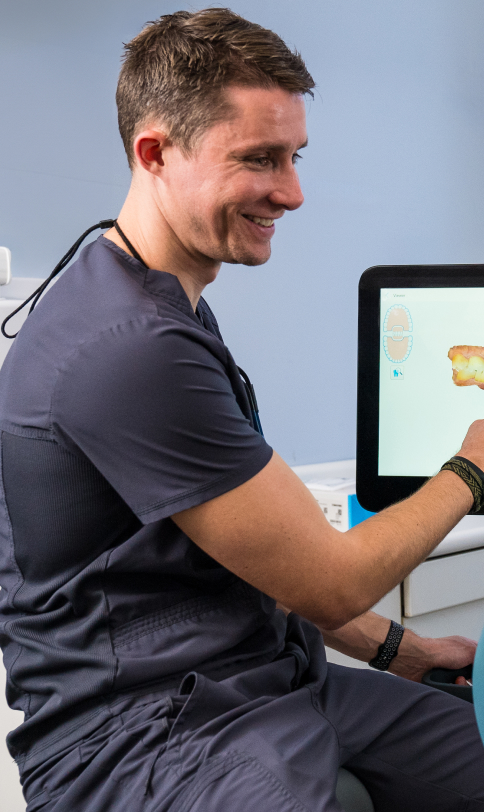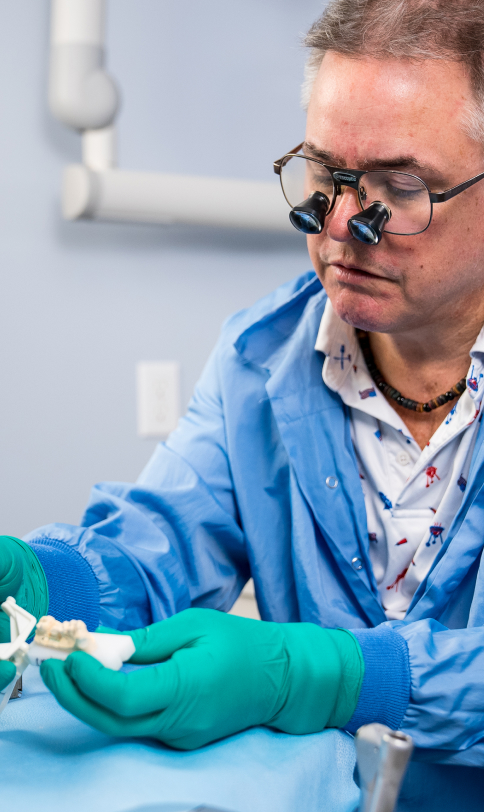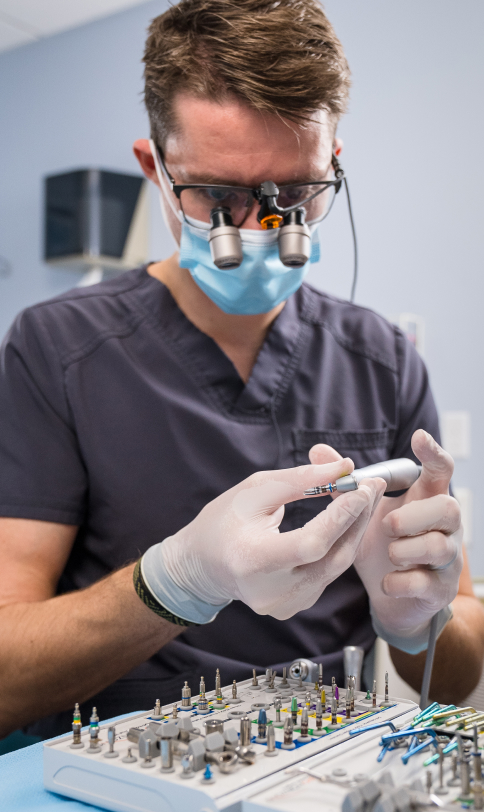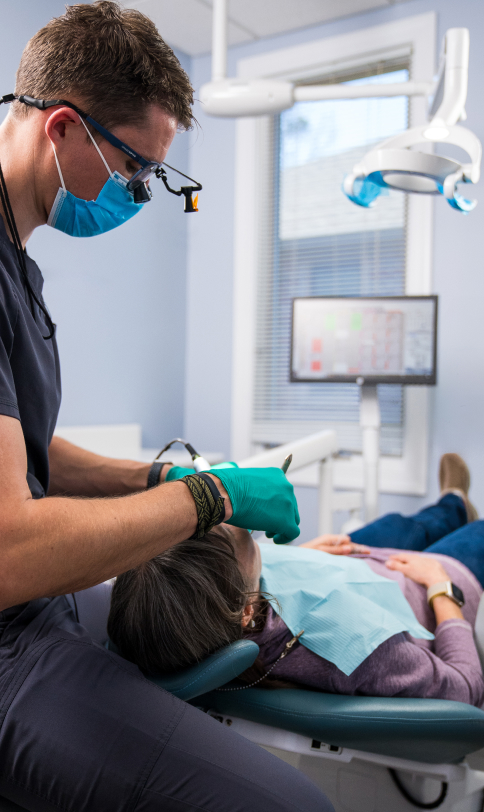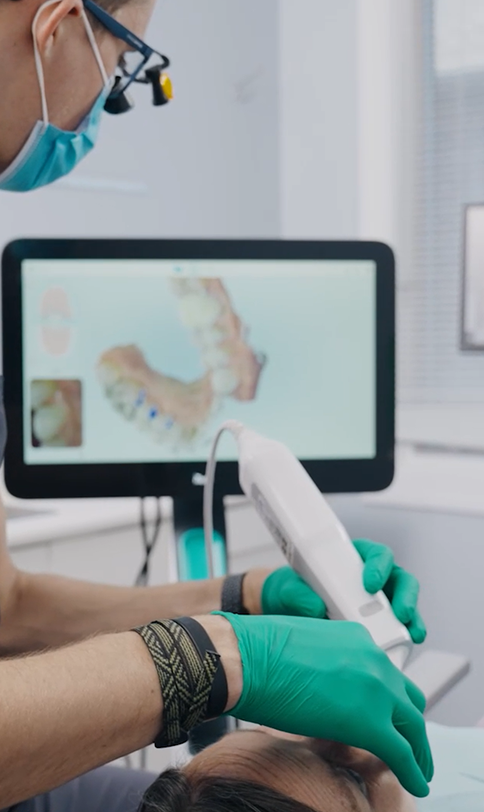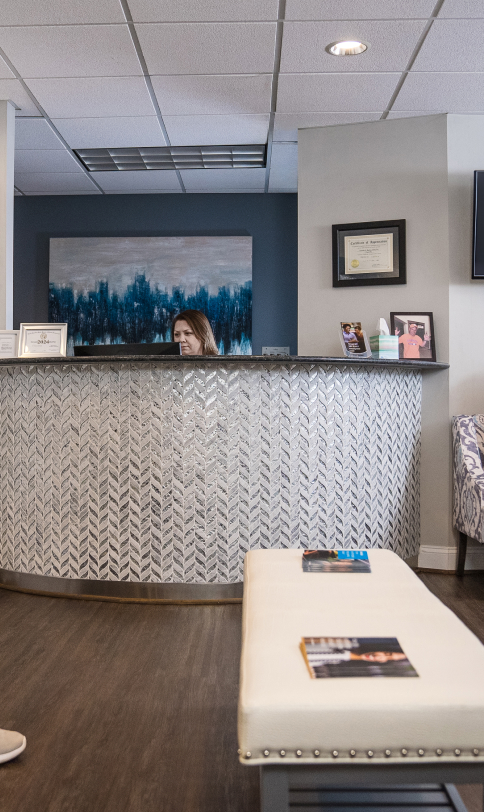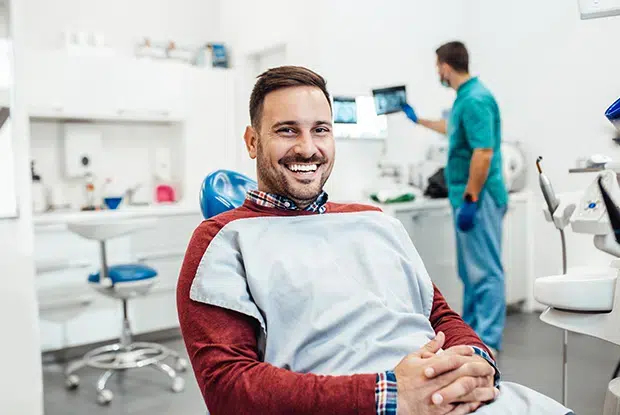
Detect Oral Cancer Early: Schedule Your Screening
Oral cancer screenings are crucial for detecting signs of disease before it progresses. This is particularly beneficial for individuals in high-risk groups. Regular screenings offer the advantage of identifying oral cancer in its early stages, increasing the likelihood of successful treatment and remission.
At Legacy Dental in Cary and the surrounding area, we provide oral cancer screenings to help ensure early detection and effective treatment.
Why Have Regular Oral Cancer Screenings?
Regular oral cancer screenings are just as important as routine dental checkups. Fortunately, patients can request to have both procedures performed simultaneously. According to the National Cancer Institute, symptoms of oral cancer often do not manifest until the disease has advanced. Early detection is key, improving the chances of successful treatment and remission.
While WebMD recommends annual dental checkups for everyone, there is no consensus among experts regarding the frequency of oral cancer screenings. A dentist can thoroughly examine how often a patient should undergo screenings based on individual risk factors and oral health status.
"Early detection significantly increases the likelihood of successful treatment and remission for oral cancer."
Groups at High Risk for Oral Cancer
- Previous oral cancer diagnosis
- Specific strains of human papillomavirus (HPV)
- Frequent alcohol consumption
- Prolonged sun exposure
- Any form of tobacco use
"Certain demographics might find regular oral cancer screenings particularly advantageous."
Limitations of Oral Cancer Screenings
Regular oral cancer screenings play a crucial role in maintaining optimal health. However, the Mayo Clinic highlights the challenge of detecting abnormal cells solely through visual examinations, potentially resulting in undetected signs of cancer or precancerous lesions.
Presence of unusual cells doesn't necessarily indicate cancer; confirmation through biopsy is required. Early detection offers more treatment options in case of malignancy.
Although the correlation between screenings and reduced oral cancer deaths remains unproven, regular screenings can aid in early cancer detection, increasing the likelihood of successful remission.
"Although concrete evidence linking screenings to reduced oral cancer deaths is currently lacking, regular screenings can facilitate early cancer detection, potentially improving the likelihood of successful remission."
What to Expect During an Oral Cancer Screening
- Throat area
- Gums
- Inner cheek surfaces
- Outer and inner lip areas
- Palate
- Tongue
"No specific preparation is needed for an oral cancer screening, and patients can anticipate the screening occurring as part of their regular dental check-up."
Additional Tests After Oral Cancer Screenings
Depending on the patient's condition, the dentist might conduct supplementary tests alongside the standard screening. More comprehensive oral cancer screenings could involve the patient rinsing their mouth with blue dye to enhance the visibility of any abnormal cells. Additionally, the dentist may use a special light during the examination, which highlights abnormal tissue by causing it to appear white.
Should any of these tests reveal indications of oral cancer or potentially cancerous lesions, the patient may require a biopsy. This entails extracting a sample of cells for laboratory analysis. Subsequently, the patient might need to schedule a follow-up appointment to monitor changes or growth in the detected abnormal area.


